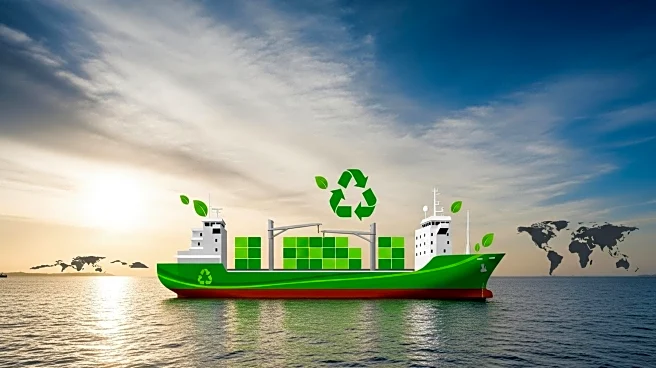What's Happening?
The International Maritime Organization (IMO) is set to decide on a carbon emissions pricing framework for global shipping, a move supported by an EU-led bloc but opposed by the United States. The proposal aims to charge ships for emissions, rewarding cleaner vessels and penalizing those exceeding thresholds. The U.S. has threatened reciprocal measures, including port fees and visa restrictions, against countries supporting the framework. The IMO's environmental committee will meet from October 14-17 to discuss the adoption of this measure, which could generate significant revenue for climate initiatives.
Why It's Important?
The IMO's proposal represents a significant step in global efforts to reduce greenhouse gas emissions from shipping, a sector responsible for a substantial portion of world trade and emissions. The U.S. opposition highlights potential geopolitical tensions, particularly with the EU, which supports the measure. The framework could lead to increased costs for shipping companies and impact global trade dynamics. The U.S. stance may influence other countries' positions and affect international climate policy negotiations.
What's Next?
The upcoming IMO meeting will be crucial in determining the future of the emissions levy proposal. If adopted, the framework could reshape shipping industry regulations and influence global climate policy. The U.S. may continue to oppose the measure, potentially leading to diplomatic and economic repercussions. Stakeholders, including shipping companies and environmental groups, will closely monitor the situation, as the outcome could have far-reaching implications for international trade and climate action.










